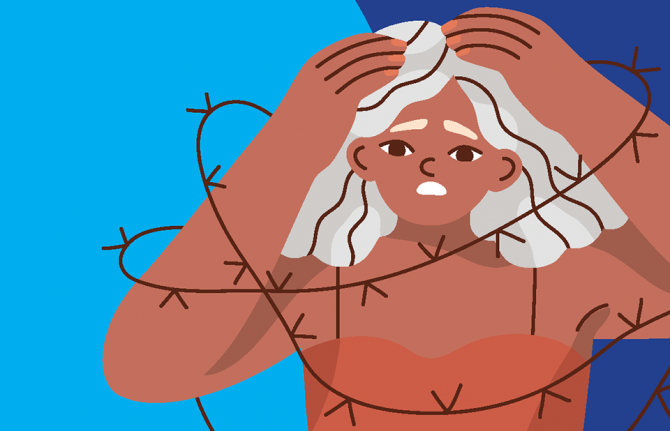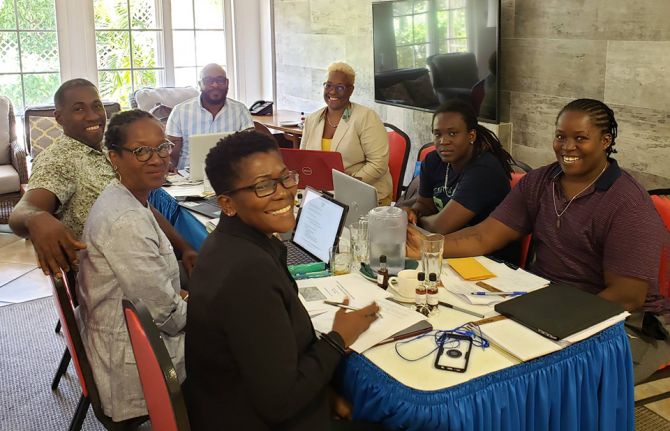
Feature Story
A human rights-based approach to prevention: Mission impossible?
19 juillet 2010
19 juillet 2010 19 juillet 2010 From the left: Mirta Roses; Tripti Tandon at ‘Human Rights based approach to HIV Prevention: Mission Impossible’, 18 July 2010. Credit: UNAIDS/Anna Rauchenberger
From the left: Mirta Roses; Tripti Tandon at ‘Human Rights based approach to HIV Prevention: Mission Impossible’, 18 July 2010. Credit: UNAIDS/Anna RauchenbergerThe Global Village of AIDS 2010 was the setting of a UNAIDS satellite session on HIV prevention and human rights. Participants discussed how evidence-informed and rights-based laws, policies and programmes can be scaled-up in support of a ‘prevention revolution’ to break the trajectory of the epidemic.
Panelists highlighted some enduring failures to recognise and protect human rights in the context of prevention, as well as examples of successful prevention responses employing a human rights-based approach. Notwithstanding some key challenges, the unanimous view of the diverse expert panel was that such an approach to prevention is not mission impossible if current opportunities to put human rights at the centre of the prevention revolution are seized. Indeed, it was felt that there can be no ‘revolution’ of the prevention response without human rights.
The event, which used a talk show format to encourage open dialogue and audience participation, was moderated by Dr Mandeep Dhaliwal, Cluster Leader of Human Rights, Gender and Sexual Diversity at the United Nations Development Programme (UNDP).
 From the left: Daouda Diouf; Carlos Passarelli at ‘Human Rights based approach to HIV Prevention: Mission Impossible’, 18 July 2010.
From the left: Daouda Diouf; Carlos Passarelli at ‘Human Rights based approach to HIV Prevention: Mission Impossible’, 18 July 2010.Credit: UNAIDS/Anna Rauchenberger
Six panelists from a range of perspectives and experiences including governments, civil society and the United Nations, presented their views on whether human rights have been used effectively to drive action towards universal access to HIV prevention, treatment, care and support.
Mr Carlos Passarelli of the Government of Brazil spoke about his country’s experience and success in HIV prevention which, he said would not have occurred without a human rights-based approach.
Speaking from first-hand knowledge, Ms Olimbi Hoxhaj of the Albanian Network of People Living with HIV, told the session about her experience in using arguments based on human rights and equality in order to get her children into school and gain access to treatment for those who were HIV-positive.
 Meena Seshu at ‘Human Rights based approach to HIV Prevention: Mission Impossible’, 18 July 2010.
Meena Seshu at ‘Human Rights based approach to HIV Prevention: Mission Impossible’, 18 July 2010.Credit: UNAIDS/Anna Rauchenberger
Ms Meena Seshu described how female, male and transgender sex workers’ access to health and HIV prevention was being undermined by the fact that their rights to the highest standards of health and to safe working conditions were not being protected. Ms Seshu is a member of SANGRAM, an Indian grass-roots peer education organisation partnering with women in sex work to promote their rights and encourage them to be agents of change.
Other panelists included Tripti Tandon from the Lawyers’ Collective in India, Dr Mirta Roses, Director of the Pan American Health Organisation, PAHO and Daouda Diouf of the international NGO Enda Sante.
A human rights-based approach to mitigating the extent and effects of the AIDS epidemic, and promoting universal access to HIV services is seen as critical. Although there has been notable progress in many areas, punitive laws, policies, practices and stigma and discrimination continue to undermine the achievement of universal access targets including access to prevention for those who need it – and the Millennium Development Goals.
Panelists emphasized that a prevention revolution must be grounded in human rights if there is to be a significant and sustainable improvement in the prevention response. In summing up the discussion at the Satellite, Mandeep Dhaliwal noted that the experiences shared confirmed that success in prevention can only be achieved in legal and social environments that advance human rights, gender equality and social justice.
She emphasised the importance of the UNAIDS High Level Commission on HIV Prevention putting the issue of human rights – for so long poorly understood and neglected in the prevention response - at the front and centre of its work. “After all, what good is a prevention revolution without human rights?”
Right Hand Content


Cosponsors:
United Nations Development Programme (UNDP)
Partners:
Pan American Health Organisation (PAHO)
Feature stories:
Landmark forum in China to champion rights-based approach to HIV (06 July 2010)
UNAIDS addresses UN Human Rights Council on the impact of punitive laws on HIV (10 June 2010)
Publications:
UNAIDS Outlook Report 2010 (pdf, 6 Mb)
UNAIDS Outcome Framework 2009-2011 (pdf, 388 Kb)



